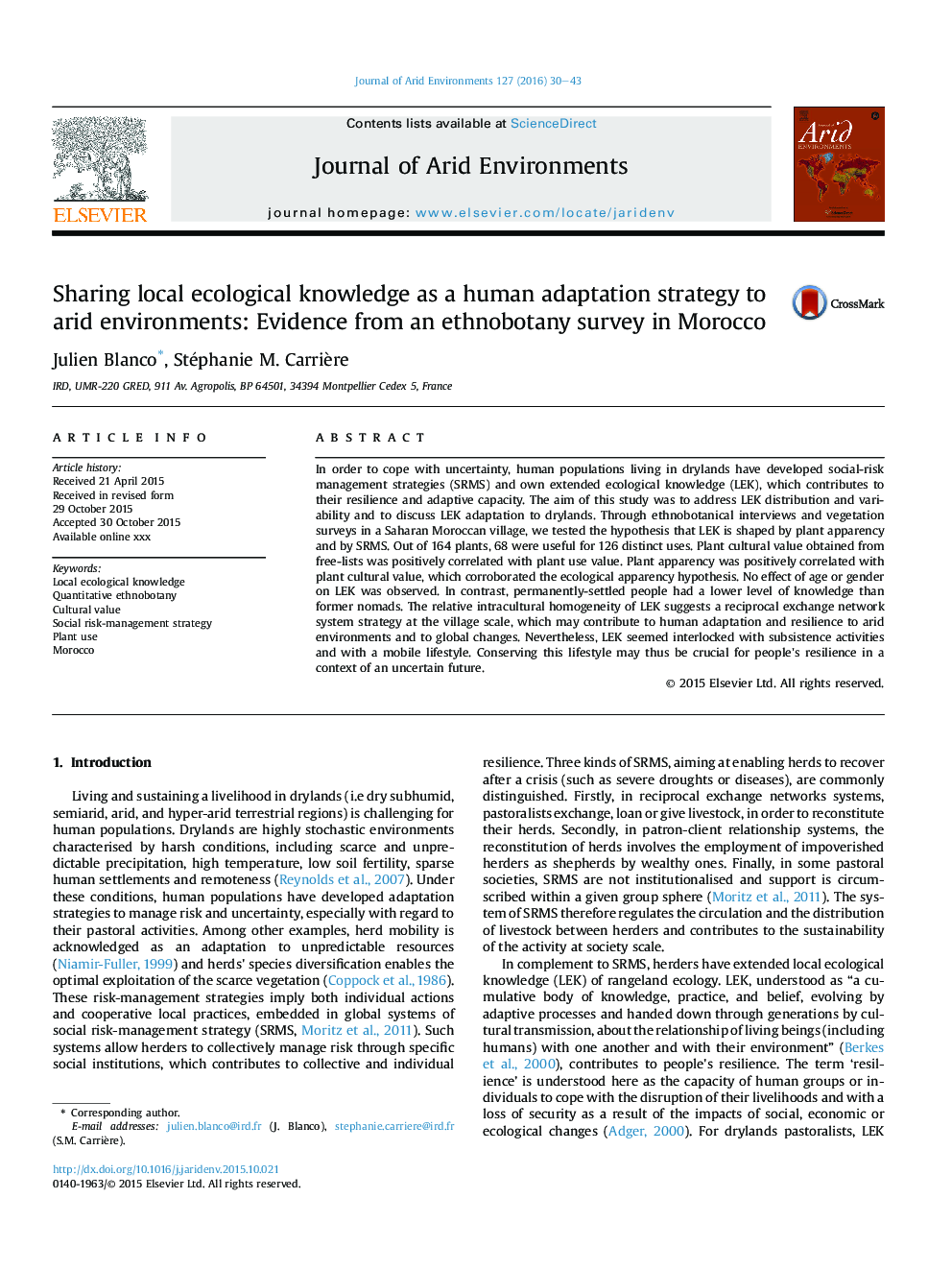| کد مقاله | کد نشریه | سال انتشار | مقاله انگلیسی | نسخه تمام متن |
|---|---|---|---|---|
| 6303235 | 1618232 | 2016 | 14 صفحه PDF | دانلود رایگان |
عنوان انگلیسی مقاله ISI
Sharing local ecological knowledge as a human adaptation strategy to arid environments: Evidence from an ethnobotany survey in Morocco
دانلود مقاله + سفارش ترجمه
دانلود مقاله ISI انگلیسی
رایگان برای ایرانیان
کلمات کلیدی
موضوعات مرتبط
مهندسی و علوم پایه
علوم زمین و سیارات
فرآیندهای سطح زمین
پیش نمایش صفحه اول مقاله

چکیده انگلیسی
In order to cope with uncertainty, human populations living in drylands have developed social-risk management strategies (SRMS) and own extended ecological knowledge (LEK), which contributes to their resilience and adaptive capacity. The aim of this study was to address LEK distribution and variability and to discuss LEK adaptation to drylands. Through ethnobotanical interviews and vegetation surveys in a Saharan Moroccan village, we tested the hypothesis that LEK is shaped by plant apparency and by SRMS. Out of 164 plants, 68 were useful for 126 distinct uses. Plant cultural value obtained from free-lists was positively correlated with plant use value. Plant apparency was positively correlated with plant cultural value, which corroborated the ecological apparency hypothesis. No effect of age or gender on LEK was observed. In contrast, permanently-settled people had a lower level of knowledge than former nomads. The relative intracultural homogeneity of LEK suggests a reciprocal exchange network system strategy at the village scale, which may contribute to human adaptation and resilience to arid environments and to global changes. Nevertheless, LEK seemed interlocked with subsistence activities and with a mobile lifestyle. Conserving this lifestyle may thus be crucial for people's resilience in a context of an uncertain future.
ناشر
Database: Elsevier - ScienceDirect (ساینس دایرکت)
Journal: Journal of Arid Environments - Volume 127, April 2016, Pages 30-43
Journal: Journal of Arid Environments - Volume 127, April 2016, Pages 30-43
نویسندگان
Julien Blanco, Stéphanie M. Carrière,